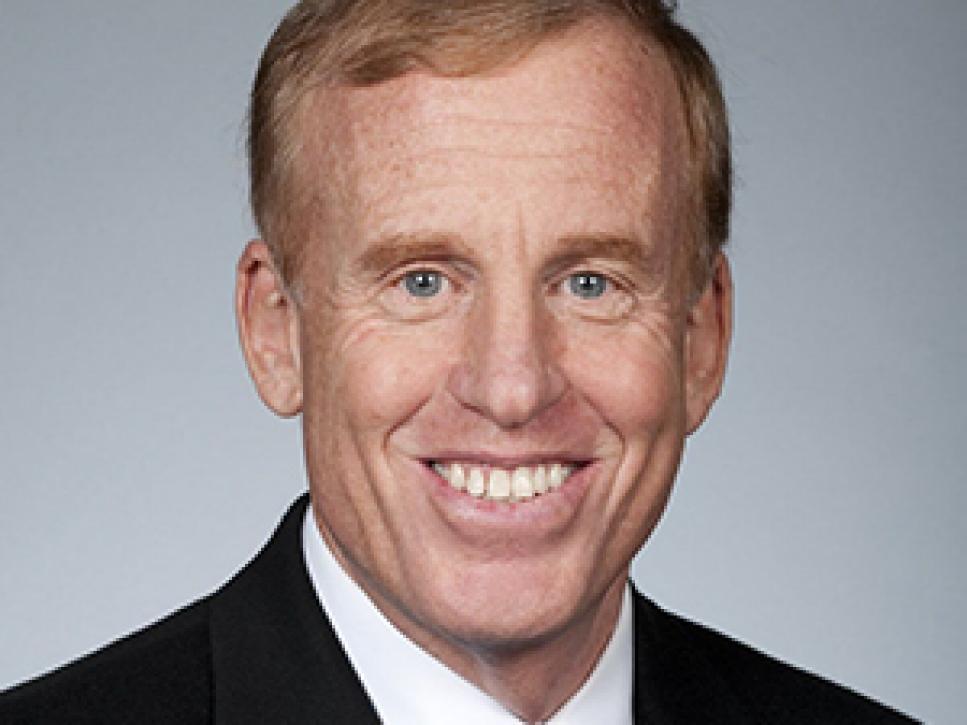The Loop
The 'why' behind National Golf Day

Steve Mona, CEO at the World Golf Foundation, helps coordinate the efforts via We Are Golf, a joint coalition within the industry that lobbies on golf's behalf. In the run up to the event, he talked with Golf Digestix.
__
__
How did National Golf Day start?
Several years ago, after Hurricane Katrina hit the Gulf Coast, Congress passed a disaster-relief bill to give businesses the ability to deduct from their income tax bill the cost associated with rebuilding. But golf was specifically excluded. That was the seminal moment that caused the industry to band together and make us realize we need to do a much better job of educating Congress about our industry.
__
__
What's the purpose of the day?
The perception of golf for too long has been that golf is an elitist sport, enjoyed by a privileged few. As a consequence, the thought was that golf can take care of itself. It's our job to educate members of Congress and members of their staff about golf. Before this, there wasn't anyone advocating for golf on Capitol Hill.
The first year, it was very much about the economic impact. People viewed golf, in term of people making a living from it, as Tiger Woods or Phil Mickelson, who are getting fabulously wealthy from it, which is fine and more power to those guys. The reality is that the backbone of golf is the person who is working on the superintendent's crew, or working for the club manager in the clubhouse, working for the professional pulling clubs out of trunks, putting them on carts, cleaning them and then putting them back on trunks. And none of those people are getting rich, trust me. And that's the backbone of golf. It's that person getting up at 5 a.m. to work. So those are the sort of things that are being communicated.
__
__
How has the effort benefited golf?
It was hard to get anyone in Congress to admit that they were a golfer a few years ago, even if they played. No one wanted to associate themselves with it. It was odd. But now, people are very open to be seen with us and saying they're on golf's side. Because they can say, "I'm supporting an industry that produces 2 million American jobs. And almost $70 billion in economic impact. Plus $4 billion in charitable impact.' We were able to reframe how people viewed golf, and we've seen the benefits.
You might say, that's all well and good, but how does this lead to legislation? I'll give you an example. When Hurricane Sandy hit, there were disaster-relief bills that were proposed. This time around, golf was not excluded among the businesses eligible for disaster relief, like after Katrina. Even though for a variety of reasons, the bills did not move through both chambers and become a law, golf was poised to benefit. I'm very sure, the next disaster happens, that golf won't be excluded. We will have effectively reversed being left off.
__
__
Will you guys tee it up or National Golf Day?
No, it's intense. We have briefing sessions the day before. The kickoff event is in the morning at the Cannon Caucus Room. Jack Nicklaus will be at that opening. Jack will draw a great crowd and he'll draw attention. Instructor Michael Breed will be there giving lessons with a simulator. Dana Rader, too. We really create a buzz.
__
__
So you'll have fun with it?
That's where we're lucky. Because golf is so unique, we can do things that other sports can't. We'll set up an indoor putting green and have a Republican vs. Democrat putting competition. Most people on Capitol Hill will know it was National Golf Day once the day is over.
The whole issue is changing the perception of golf, in the minds of members of Congress and their staffers. The staff is very powerful, because the member of Congress themselves can't possibly stay up on all the issues. But they do rely on their staffers to meet with constituents and distill the issues down. So that's why it's critical to meet with key staffers. So that's a big part of what we do. It's changing how people conceive golf. [People on Capitol Hill] like for you to develop relationships, support them. When that day does come when you need your help, and as long as you have a valid position and you can articulate your rationale well, and they can buy into it.

